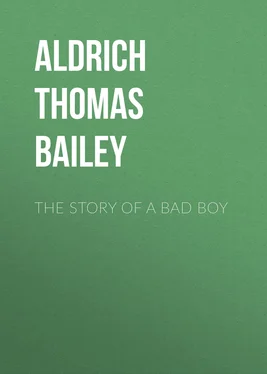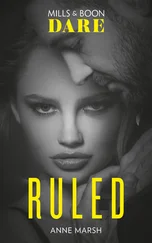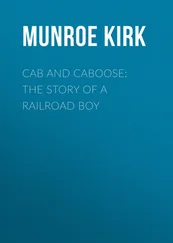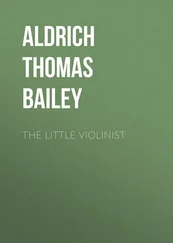Thomas Aldrich - The Story of a Bad Boy
Здесь есть возможность читать онлайн «Thomas Aldrich - The Story of a Bad Boy» — ознакомительный отрывок электронной книги совершенно бесплатно, а после прочтения отрывка купить полную версию. В некоторых случаях можно слушать аудио, скачать через торрент в формате fb2 и присутствует краткое содержание. Жанр: foreign_children, foreign_antique, foreign_prose, на английском языке. Описание произведения, (предисловие) а так же отзывы посетителей доступны на портале библиотеки ЛибКат.
- Название:The Story of a Bad Boy
- Автор:
- Жанр:
- Год:неизвестен
- ISBN:нет данных
- Рейтинг книги:5 / 5. Голосов: 1
-
Избранное:Добавить в избранное
- Отзывы:
-
Ваша оценка:
- 100
- 1
- 2
- 3
- 4
- 5
The Story of a Bad Boy: краткое содержание, описание и аннотация
Предлагаем к чтению аннотацию, описание, краткое содержание или предисловие (зависит от того, что написал сам автор книги «The Story of a Bad Boy»). Если вы не нашли необходимую информацию о книге — напишите в комментариях, мы постараемся отыскать её.
The Story of a Bad Boy — читать онлайн ознакомительный отрывок
Ниже представлен текст книги, разбитый по страницам. Система сохранения места последней прочитанной страницы, позволяет с удобством читать онлайн бесплатно книгу «The Story of a Bad Boy», без необходимости каждый раз заново искать на чём Вы остановились. Поставьте закладку, и сможете в любой момент перейти на страницу, на которой закончили чтение.
Интервал:
Закладка:
After a brief consultation, my grandfather patted me on the head and left me in charge of this gentleman, who seated himself in front of me and proceeded to sound the depth, or, more properly speaking, the shallowness, of my attainments. I suspect my historical information rather startled him. I recollect I gave him to understand that Richard III was the last king of England.
This ordeal over, Mr. Grimshaw rose and bade me follow him. A door opened, and I stood in the blaze of forty-two pairs of upturned eyes. I was a cool hand for my age, but I lacked the boldness to face this battery without wincing. In a sort of dazed way I stumbled after Mr. Grimshaw down a narrow aisle between two rows of desks, and shyly took the seat pointed out to me.
The faint buzz that had floated over the school-room at our entrance died away, and the interrupted lessons were resumed. By degrees I recovered my coolness, and ventured to look around me.
The owners of the forty-two caps were seated at small green desks like the one assigned to me. The desks were arranged in six rows, with spaces between just wide enough to prevent the boys’ whispering. A blackboard set into the wall extended clear across the end of the room; on a raised platform near the door stood the master’s table; and directly in front of this was a recitation-bench capable of seating fifteen or twenty pupils. A pair of globes, tattooed with dragons and winged horses, occupied a shelf between two windows, which were so high from the floor that nothing but a giraffe could have looked out of them.
Having possessed myself of these details, I scrutinized my new acquaintances with unconcealed curiosity, instinctively selecting my friends and picking out my enemies—and in only two cases did I mistake my man.
A sallow boy with bright red hair, sitting in the fourth row, shook his fist at me furtively several times during the morning. I had a presentiment I should have trouble with that boy some day—a presentiment subsequently realized.
On my left was a chubby little fellow with a great many freckles (this was Pepper Whitcomb), who made some mysterious motions to me. I didn’t understand them, but, as they were clearly of a pacific nature, I winked my eye at him. This appeared to be satisfactory, for he then went on with his studies. At recess he gave me the core of his apple, though there were several applicants for it.
Presently a boy in a loose olive-green jacket with two rows of brass buttons held up a folded paper behind his slate, intimating that it was intended for me. The paper was passed skillfully from desk to desk until it reached my hands. On opening the scrap, I found that it contained a small piece of molasses candy in an extremely humid state. This was certainly kind. I nodded my acknowledgments and hastily slipped the delicacy into my mouth. In a second I felt my tongue grow red-hot with cayenne pepper.
My face must have assumed a comical expression, for the boy in the olive-green jacket gave an hysterical laugh, for which he was instantly punished by Mr. Grimshaw. I swallowed the fiery candy, though it brought the water to my eyes, and managed to look so unconcerned that I was the only pupil in the form who escaped questioning as to the cause of Marden’s misdemeanor. C. Marden was his name.
Nothing else occurred that morning to interrupt the exercises, excepting that a boy in the reading class threw us all into convulsions by calling Absalom A-bol’-som “Abolsom, O my son Abolsom!” I laughed as loud as anyone, but I am not so sure that I shouldn’t have pronounced it Abolsom myself.
At recess several of the scholars came to my desk and shook hands with me, Mr. Grimshaw having previously introduced me to Phil Adams, charging him to see that I got into no trouble. My new acquaintances suggested that we should go to the playground. We were no sooner out-of-doors than the boy with the red hair thrust his way through the crowd and placed himself at my side.
“I say, youngster, if you’re comin’ to this school you’ve got to toe the mark.”
I didn’t see any mark to toe, and didn’t understand what he meant; but I replied politely, that, if it was the custom of the school, I should be happy to toe the mark, if he would point it out to me.
“I don’t want any of your sarse,” said the boy, scowling.
“Look here, Conway!” cried a clear voice from the other side of the playground. “You let young Bailey alone. He’s a stranger here, and might be afraid of you, and thrash you. Why do you always throw yourself in the way of getting thrashed?”
I turned to the speaker, who by this time had reached the spot where we stood. Conway slunk off, favoring me with a parting scowl of defiance. I gave my hand to the boy who had befriended me—his name was Jack Harris—and thanked him for his good-will.
“I tell you what it is, Bailey,” he said, returning my pressure good-naturedly, “you’ll have to fight Conway before the quarter ends, or you’ll have no rest. That fellow is always hankering after a licking, and of course you’ll give him one by and by; but what’s the use of hurrying up an unpleasant job? Let’s have some baseball. By the way, Bailey, you were a good kid not to let on to Grimshaw about the candy. Charley Marden would have caught it twice as heavy. He’s sorry he played the joke on you, and told me to tell you so. Hallo, Blake! Where are the bats?”
This was addressed to a handsome, frank-looking lad of about my own age, who was engaged just then in cutting his initials on the bark of a tree near the schoolhouse. Blake shut up his penknife and went off to get the bats.
During the game which ensued I made the acquaintance of Charley Marden, Binny Wallace, Pepper Whitcomb, Harry Blake, and Fred Langdon. These boys, none of them more than a year or two older than I (Binny Wallace was younger), were ever after my chosen comrades. Phil Adams and Jack Harris were considerably our seniors, and, though they always treated us “kids” very kindly, they generally went with another set. Of course, before long I knew all the Temple boys more or less intimately, but the five I have named were my constant companions.
My first day at the Temple Grammar School was on the whole satisfactory. I had made several warm friends and only two permanent enemies—Conway and his echo, Seth Rodgers; for these two always went together like a deranged stomach and a headache.
Before the end of the week I had my studies well in hand. I was a little ashamed at finding myself at the foot of the various classes, and secretly determined to deserve promotion. The school was an admirable one. I might make this part of my story more entertaining by picturing Mr. Grimshaw as a tyrant with a red nose and a large stick; but unfortunately for the purposes of sensational narrative, Mr. Grimshaw was a quiet, kindhearted gentleman. Though a rigid disciplinarian, he had a keen sense of justice, was a good reader of character, and the boys respected him. There were two other teachers—a French tutor and a writing-master, who visited the school twice a week. On Wednesdays and Saturdays we were dismissed at noon, and these half-holidays were the brightest epochs of my existence.
Daily contact with boys who had not been brought up as gently as I worked an immediate, and, in some respects, a beneficial change in my character. I had the nonsense taken out of me, as the saying is—some of the nonsense, at least. I became more manly and self-reliant. I discovered that the world was not created exclusively on my account. In New Orleans I labored under the delusion that it was. Having neither brother nor sister to give up to at home, and being, moreover, the largest pupil at school there, my will had seldom been opposed. At Rivermouth matters were different, and I was not long in adapting myself to the altered circumstances. Of course I got many severe rubs, often unconsciously given; but I had the sense to see that I was all the better for them.
Читать дальшеИнтервал:
Закладка:
Похожие книги на «The Story of a Bad Boy»
Представляем Вашему вниманию похожие книги на «The Story of a Bad Boy» списком для выбора. Мы отобрали схожую по названию и смыслу литературу в надежде предоставить читателям больше вариантов отыскать новые, интересные, ещё непрочитанные произведения.
Обсуждение, отзывы о книге «The Story of a Bad Boy» и просто собственные мнения читателей. Оставьте ваши комментарии, напишите, что Вы думаете о произведении, его смысле или главных героях. Укажите что конкретно понравилось, а что нет, и почему Вы так считаете.












